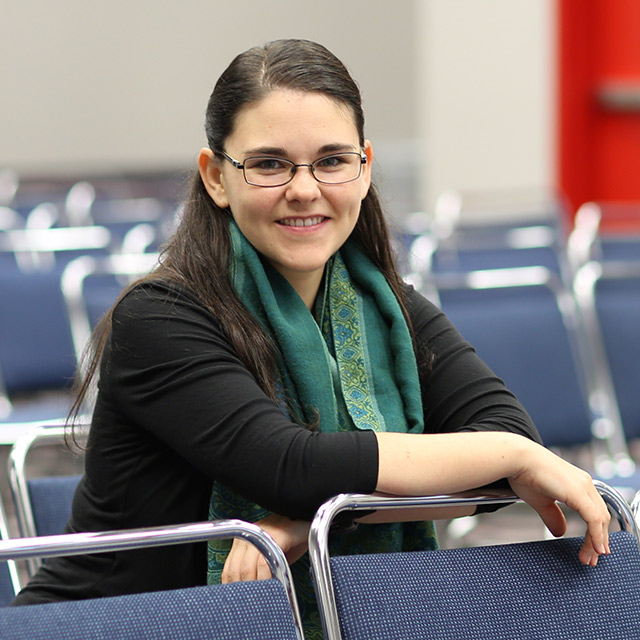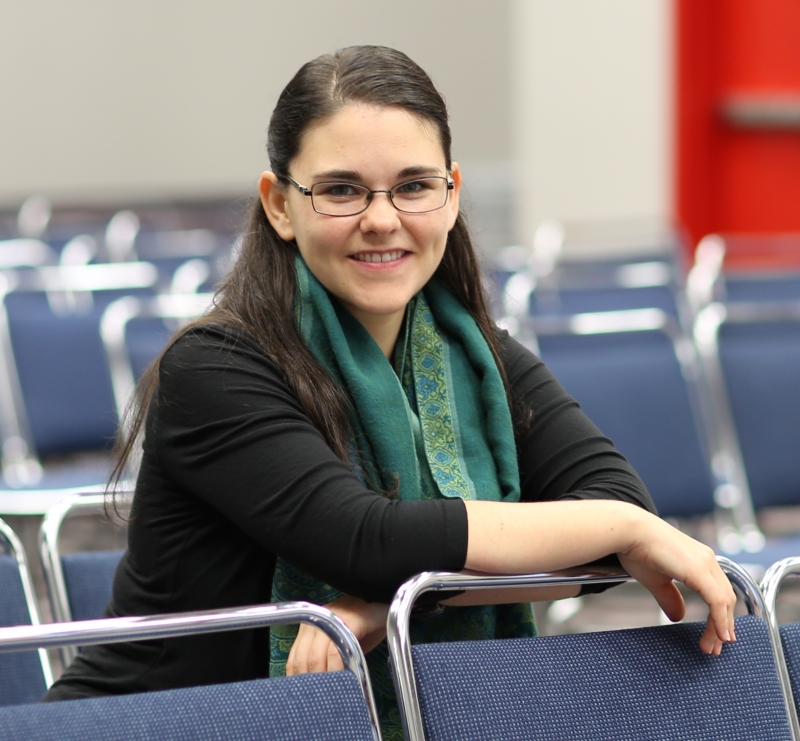
Danielle Harrison
Sharing Christ with your LGBT Patients
By the time I was 25-years-old, I identified as a lesbian. I had ten years behind me of living as a bisexual, a history littered with broken relationships and heartache, which convinced me that finding a woman to commit myself to was the only way to a happy and lasting relationship. Shortly after that, however, I met Jesus Christ, and He drastically changed my life. Before Jesus, my sexuality was more than what I did in the privacy of my own bedroom, it became my identity. Indeed, it colored a lot of other aspects of my life, including how I presented myself to the world and how others viewed me.
Because the LGBT individual’s sexuality is such a large part of who he or she is, it can sometimes make it challenging for Christians to know how to balance loving someone who identifies as LGBT without compromising their Christian values. How do we witness to them without condoning that aspect of their lives?
We cannot look at most people and see what their sin is. But today many LGBT people are very open, vocal, even proud of this identity. And if we, as Christians, accept the biblical definition of what God does and does not condone for our sexuality, how do we relate to someone living in open sin like this?
This is a struggle that we face whenever we know of anyone embracing sin: thieves, alcoholics, adulterers, prostitutes, and so forth. How do we minister to them without encouraging their harmful behavior? And where do we draw the line when it comes to the professional services we offer?
For starters, if we permit our focus to settle on their sin, it will allow the enemy to build a wall between us and them. We will lose our ability to relate to them as the Lord would have us: remembering that they are a precious child of God for whom Jesus shed His blood. In reality, we are in the same desperate need as they are for Christ’s forgiveness and cleansing. It is helpful to look for things we do have in common with them to help form a connection. As we look past their sin and see them as God does – a valuable, priceless child of His, Christ will build a bridge from our heart to theirs. This is the only avenue through which we can connect with them and be a good witness.
This was what the people around me did on the campus where I was converted. When they began to learn who I really was, I expected them to change how they acted toward me. Praise God that’s not what happened.
I remember the morning when I was invited to a doctor’s house for breakfast and he asked if I was a Christian. “These people have been really nice to me so far,” I thought, “but that’s over now. When they all find out I’m not a Christian, they are all going to change.” The same thought ran through my head the first time someone mentioned to me that they had seen on Facebook that I was interested in women. But instead of stepping back, as I expected—they stepped forward. They were even more kind, loving, and helpful than before. I will never forget how much that stuck out in my mind. It was the beginning of many experiences that worked to change my prejudices about Christians.
How, then, should the medical professional deal with LGBT clientele? What did Christ do for sinners in His earthly ministry? In the Ministry of Healing, Ellen White tells us that He ministered to their needs and thereby won their confidence. All this before He bade them “Follow Me.” As long as you are not providing services that affirm them in their sexuality, gender confusion, or in the redefinition of marriage, serve them with your whole heart, as Jesus would. Don’t be afraid to extend yourself and to show sympathy for their needs. Do your best to reflect Christ in all you do, and this will have more of an impact on them than you could ever calculate.
We often think that, in order to help someone, we need to show them that what they are doing is wrong. But we cannot convict the hearts of men, nor can we reveal to them their need for change. Only the Holy Spirit can. But there is something that we can do for them: we can pray.
God, the ultimate example of a perfect gentleman, never forces Himself upon us. Instead, He waits for the invitation. So our petitions on their behalf will give God that invitation, and He will move mightily in the life and upon the heart. We cannot fathom what God sets in motion when we invite Him into their lives. Through our specific, intentional prayers, we can have faith that God will work for them. My mother prayed often: “Lord, interrupt her life, convict her of her sins, and help her to see her need of You!” These prayers invited God to move mountains on my behalf. Invite the Lord to bring these individuals to your mind when they need the assistance of His angels the most. And then invite Him to open the doors and use you to speak His words to them at the right time. Prayer is our first defense, not our last resort.
“Prayer moves the arm of Omnipotence. He who marshals the stars in order in the heavens, whose word controls the waves of the great deep – the same infinite Creator will work in behalf of His people, if they will call upon Him in faith. He will restrain all the forces of darkness, until the warning is given to the world, and all who will heed it are prepared for His coming.”1
Our primary focus should be on expressing Christ’s love and service to a dying world. Look for solutions instead of focusing on the problems. But in doing so, we must maintain right boundaries. Therefore I want to emphasize this again: as long as you are not providing services that affirm them in their sexuality, gender confusion, or in the redefinition of marriage, then serve them with your whole heart. This will require different boundaries for different professionals. Of course, this must be bathed in prayer, also.
An example of such boundaries became apparent to me during a recent conversation I had with a fertility specialist. After I finished speaking at his church, he asked my opinion. “Part of me thinks that helping a lesbian couple conceive could potentially lead them to a relationship with God, because Enoch never really understood the love of God for him until he had his son. But the other part of me wonders if by helping them, I am helping to cement them into a relationship that will only direct them away from God.” I had to agree with his latter conviction. While child-rearing does, sometimes, awaken an interest for God in parental hearts, this is often fleeting when the heart is not converted. Furthermore, any same-sex couple is much less apt to walk away from a relationship once children are involved, and understandably so. It was hard for me to give him an answer that conflicts with his career, but I personally could never condone that kind of service in this given situation.
As the issues revolving around sexuality and gender grow more convoluted, some may have to step away from certain jobs or positions that will force them to do work that compromise their convictions. But this situation reminds me of one of my favorite hymns. “Follow in His footsteps, go where He has trod. In the world’s great trouble risk yourself for God.”2 Christ was always willing to lay self aside to help a soul in need! But He never once laid aside the standards of the Word, even if it meant He would face persecution in doing so. He let His ministry efforts confirm the true definition of marriage, and in this, He confirmed God’s design for our sexuality. We can consider it our privilege to do the same as we seek to be examples of His love and acceptance to all our patients.
References:
1. Review and Herald, December 14, 1905.
2. Let Your Heart Be Broken, SDA Hymnal, #575

<< | Table of Contents | >>
